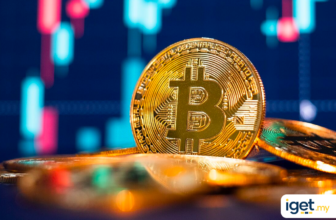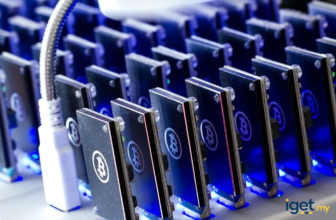Introduction
In recent years, the traditional financial system has been disrupted by a number of new technologies and trends. These include blockchain technology, digital currencies like Bitcoin and Ethereum, and initial coin offerings (ICOs). However, these technologies have had limited success in penetrating the traditional banking industry because they require significant changes to its current operating model. DeFi is a new movement that seeks to displace some of the functions of banks but without requiring significant overhauls from them. This article will examine what decentralized finance (DeFi) is, how it works, what benefits it offers consumers and businesses alike, and why it could disrupt the traditional financial system as we know it today
What is decentralized finance (DeFi)?
DeFi is a decentralized financial system, meaning it exists on the internet and isn’t controlled by any one institution or government.
In DeFi, users can create new financial products and services on top of the blockchain platform. This includes everything from lending platforms to insurance products to cryptocurrency exchanges or stablecoins (cryptocurrencies that are pegged to fiat currencies).
The benefits of DeFi include:
- Disintermediation — Financial institutions (banks) are removed from the equation. Instead, you interact directly with other people who want to lend you money through a smart contract. This removes costly fees for both parties involved in the transaction and gets rid of lengthy processing times for loans/deposits etc., since there’s no third party involved who needs their cut before money changes hands;
- Transparency — All information about your transactions will be visible through an immutable public ledger (i.e., blockchain);
- Decentralization — No single organization controls all operations within this ecosystem;
How does DeFi work?
To understand DeFi, it's important to first understand the concept of decentralized exchanges and smart contracts.
Decentralized exchanges (DEXs) are online platforms that trade cryptocurrencies directly between users without using a central intermediary like an exchange or bank. In this respect, they function similarly to traditional peer-to-peer (P2P) marketplaces like eBay or Airbnb. However, because they operate on blockchain technology and don't require third parties to hold currency balances in escrow—like some centralized crypto exchanges do—they're able to offer better security and lower fees than traditional alternatives.
Kraken Our Pick
Luno
Smart contracts are software programs that automatically execute payments when certain conditions are met by both parties involved in an agreement. They're also written in code rather than natural language which helps ensure trustworthiness since there's less room for error; thus making them ideal for applications where precise terms need to be set forth prior to any transaction taking place such as financial trading platforms created using blockchain technology
What are the benefits of DeFi?
Decentralized finance (DeFi) benefits from being a decentralized financial system.
- Transparency and accountability: DeFi is inherently more transparent than traditional financial systems, which is one of its key selling points. With no central authority or intermediary taking a cut of all transactions, every individual involved in a transaction can see exactly how much money is being exchanged and what it’s being used for. This makes it easier for users to hold each other accountable for their actions—and unlike centralized services like PayPal or Venmo, there’s no way for anyone (including the government) to control your funds without hacking into your computer.
- Freedom from regulation: In addition to greater transparency comes greater freedom from regulations that interfere with how you use your money—and this is especially true if you live in one of those countries where crypto assets are still considered illegal tender by law enforcement agencies. With DeFi applications like MakerDAO's Dai stablecoin USDVault service , anyone who wants access to US dollars without having them tied up in an FDIC-insured bank account can do so privately through an Ethereum smart contract at whatever price they choose (as long as there's enough collateral backing them).
How will DeFi influence the future of finance?
The cost of borrowing has been steadily decreasing over the past several years because of the technological advancements in the financial industry. These innovations include the creation of peer-to-peer lending platforms as well as digital assets that can be used as collateral. As DeFi continues to grow, it will continue to reduce these costs even further by creating new ways for people to borrow money at lower rates than they would otherwise be able to get from traditional banks.
As mentioned earlier, DeFi is also helping with lending rates by providing investors with low-risk opportunities for making profits through their investments in tokenized assets on decentralized exchanges (DEXs). Investors who have previously been unable to take part in this market due to their lack of experience or knowledge about cryptocurrencies now have access through these exchanges. This means that more people will be able to participate in DeFi and make investment decisions based on their own research rather than relying completely on advice from others who may not have their best interests at heart
Huobi
Conclusion
DeFi is a new, more transparent way of financing that will change the way the world works. It has the potential to disrupt the traditional financial system and create a more transparent system.
DeFi is still in its early days, but it has already made waves by signaling a shift toward greater transparency and trust in financial systems, which could potentially benefit all parties involved. The biggest issues facing DeFi are scalability and regulation; however, if these two issues can be addressed in a meaningful way—or at least mitigated—it's likely DeFi will continue growing at an exponential rate over time.
The decentralized finance movement has the potential to disrupt the traditional financial system, but there may be some issues that need to be addressed.
DeFi is a new financial system that has the potential to disrupt the traditional financial system. It's a collection of protocols and applications that use smart contracts to create new financial products. The key feature of DeFi is that it's decentralized, meaning that it runs on a blockchain rather than in centralized institutions such as banks or stock exchanges. This decentralization makes it more secure than traditional finance systems because no one can control it—it can't be shut down by regulators or hackers, and no one needs permission from anyone else in order to access your funds stored on DeFi networks
However, there are some issues with this type of system:
- There's an issue with trustworthiness when dealing with anonymous transactions online; if you don't know who has sent you money then you may not really trust them enough for large amounts of capital like millions or billions. If someone steals your money through fraud then there isn't much recourse available since there aren't any laws protecting people against fraudulent behavior within cryptocurrencies either!
Conclusion
The decentralized finance movement is still in its early stages, but it has the potential to disrupt the traditional financial system. While there are many benefits that can be reaped by this new form of financing, there are also some issues that need to be addressed before it's fully implemented. However, with so much progress being made and more people learning about this technology every day, these problems may soon become a thing of the past!











